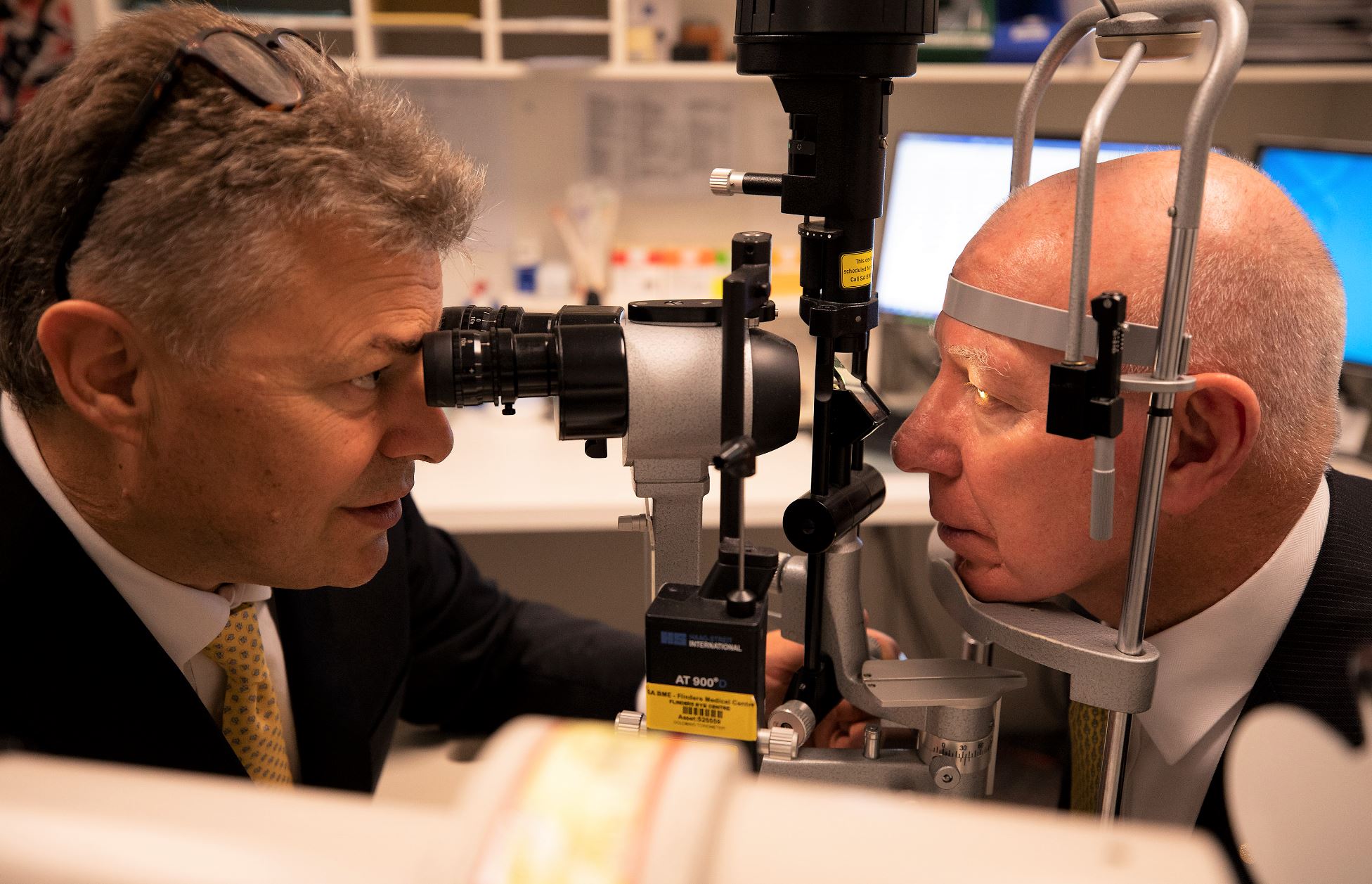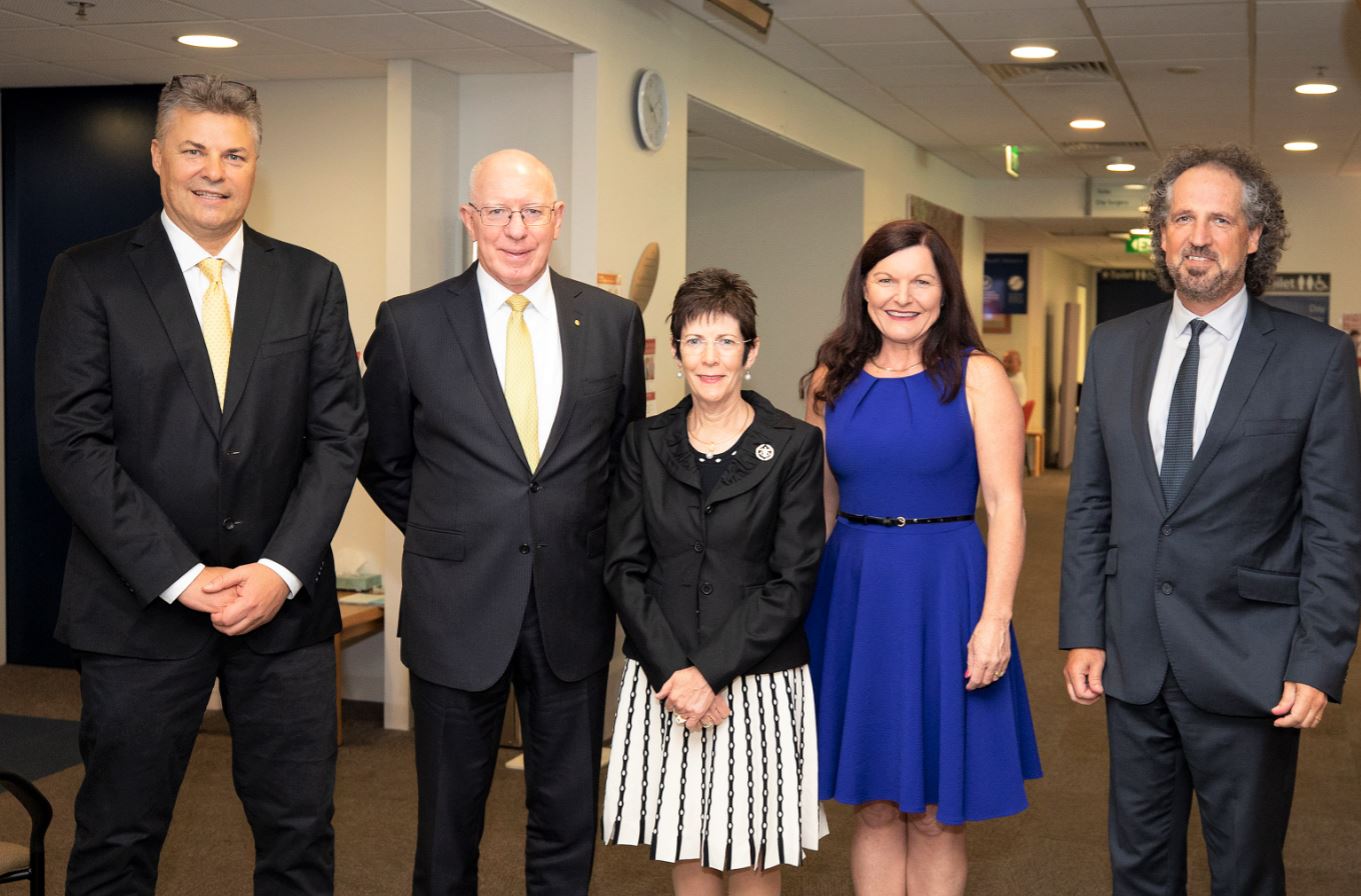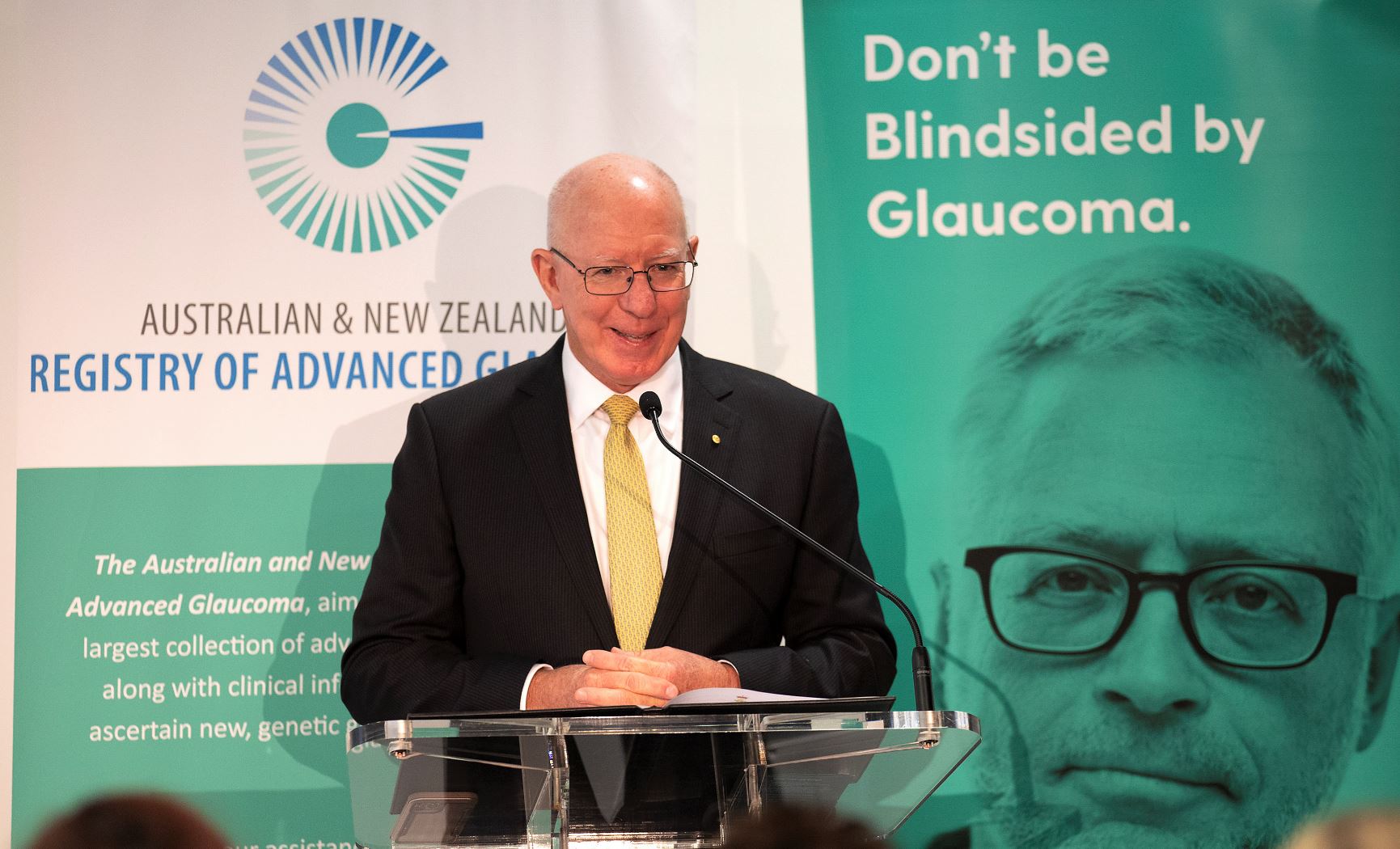
World Glaucoma Week culminated with a visit to Flinders by the Governor-General, His Excellency David Hurley AC DSC and Her Excellency Mrs Linda Hurley.
A patient symposium hosted by Glaucoma Australia, including an overview of world-leading genetic research led by Professor Jamie Craig and others, was held at the Flinders Centre for Innovation in Cancer and Flinders Eye Centre, at FMC and Flinders Private Hospital.
“Glaucoma is the leading cause of irreversible blindness worldwide, affecting more than 60 million people. In Australia, there are more than 300,000 Australians suffering from some form of glaucoma,” says Professor Craig, whose research into risk-profiling for the disease receives support from Glaucoma Australia.
Identifying common genetic markers to better predict an individual’s likelihood of developing glaucoma is at the forefront of early-detection efforts.
While one in 200 Australians over the age of 40 will develop glaucoma, the prevalence increases to one is 8 by age 80. Half of those in the earlier stages are undiagnosed, and tragically may present later with irreversible vision loss.

Glaucoma Australia chief executive Mrs Annie Gibbins says the alarming statistics show that early detection is vital.
“Many people who have lost vision could have maintained their sight if the diagnosis and treatments were delivered sooner. This is why the work that Glaucoma Australia and eye health professionals are doing in the area of early detection is so important – and why the patient symposium is critical in improving patient outcomes and quality of life through collaborative care,” Mrs Gibbins says.
Visitors, including glaucoma patients, heard about the latest research into genetic markers for the disease.
They heard from people living with glaucoma, as well as a panel of experts in ophthalmology, optometry, pharmacy and orthoptics who discussed the benefits of collaborative care for people with glaucoma
As part of its ‘Don’t be Blindsided’ campaign, Glaucoma Australia is encouraging all Australians over 50 and those with a family history of the disease to get their eyes checked.
The campaign urges Australians to have their eyes checked by an optometrist every two years to prevent the irreversible damage caused by glaucoma if left untreated.

Glaucoma Australia’s mission is to eliminate glaucoma blindness by detecting and treating early. While 300,000 Australians, a further 150,000 people are probably completely unaware they have it and are therefore at risk of suffering preventable but irreversible blindness.
Relatives of people with glaucoma are urged to have early and regular testing, due to the fact they are 10 times more likely to have glaucoma due to the genetic risk profile.
You are at a higher risk of developing glaucoma if you:
- Have a family history of glaucoma
- Have high eye pressure
- Are aged over 50
- Are of African or Asian descent
- Have diabetes
- Are short or long sighted
- Have been on a prolonged course of cortisone (steroid) medication
- Experience migraines
- Have had an eye operation or eye injury
- Have a history of high or low blood pressure

